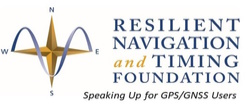Once the province of hostile nations, electronic warfare has arrived with little fanfare on U.S. highways and byways.
Criminals, rogue employees and even otherwise law-abiding citizens are using illegal “jamming” devices to overpower GPS, cellphone and other electronic signals over localized areas. The devices are small and mobile — a common variety plugs into a vehicle’s cigarette lighter — making it difficult for law enforcement to identify the culprits.
And experts say the threat to the Global Positioning System (GPS) — the critical space-based navigational, positional and timing network — is escalating as potentially more destructive “spoofing” devices become readily available.
“We’re highly dependent on (GPS) in pretty much every part of our economy and security, yet it’s very easy to disrupt,” said Dana Goward, president and executive director of the Resilient Navigation and Timing Foundation, which is urging the federal government to move quickly to better protect GPS and to develop a backup system. “… I think the general consensus is that any outage of more than an hour or two would be pretty unpleasant.”
Experts have been warning for years about the vulnerabilities of GPS, a global network of 36 U.S. satellites that provides timing data for a wide array of critical infrastructure, including telecommunications, the energy grid and financial markets, as well as everyday applications like smart phone mapping and ride-sharing services like Uber.
“If there were an airline crash or a wide-scale, long-duration interruption of GPS, say in New York City, that affected the stock exchanges there, you can bet there would be a lot of people wagging their fingers and saying, ‘I told you so,'” said Todd Humphreys, associate professor at the Radionavigation Laboratory at the University of Texas at Austin and a leading authority on GPS security holes.

